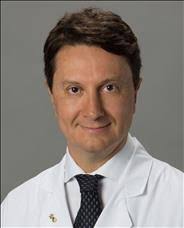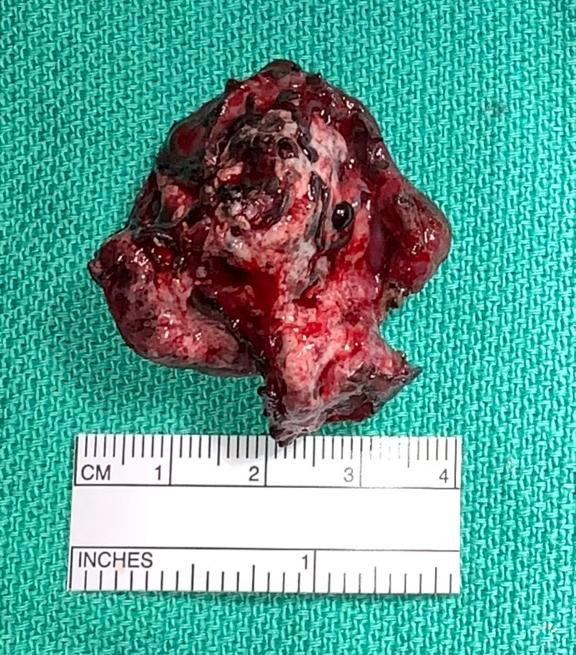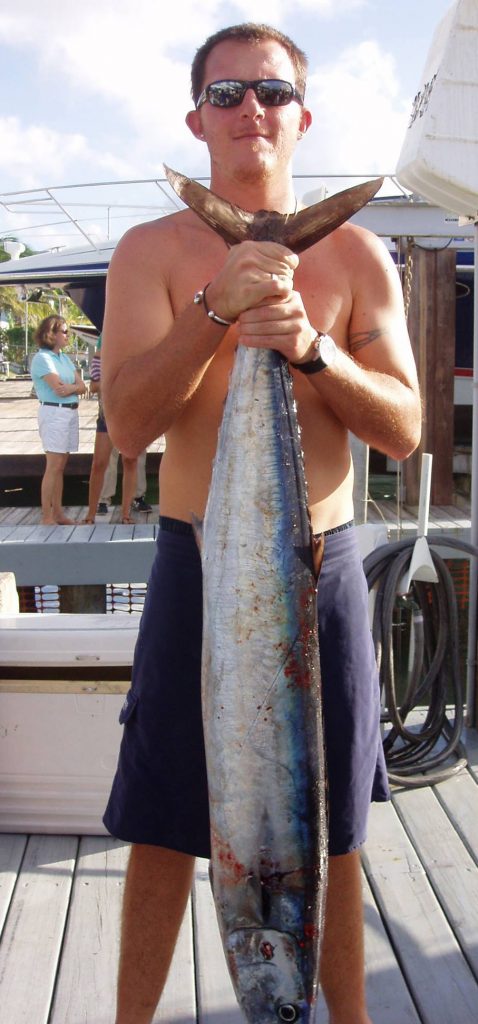March 6, 2020 by John Fernandez
Rare Brain Condition Brings Antigua Man to Baptist Health for Treatment

Few people know what an arteriovenous malformation (AVM) is. Robert Hall certainly didn’t –until he suffered a brain seizure on August 23rd and awoke to find himself in the hospital, surrounded by his family.
AVMs are a tangle of abnormal blood vessels connecting arteries and veins in the brain. According to Italo Linfante, M.D., Medical Director of Interventional Neuroradiology and Endovascular Neurosurgery at Miami Neuroscience Institute and Miami Cardiac & Vascular Institute – both a part of Baptist Health South Florida – brain AVMs are rare, affecting an estimated 10 to 18 adults out of 100,000.
(Watch now: The Baptist Health News Team speaks with AVM patient Robert Hall and his neurosurgeon, Italo Linfante, M.D., at Miami Cardiac & Vascular Institute. Video by Dylan Kyle.)
“The danger with an AVM, though, is that it can rupture without warning and cause a brain hemorrhage, or bleeding on the brain, which can be instantly fatal,” Dr. Linfante says.
It is the same condition that felled former Oakland Raiders linebacker Neiron Ball, 27, who died in early September after having been in a coma since suffering an AVM-related brain hemorrhage last December.
Mr. Hall, 38, of St. John’s, Antigua, was more fortunate. An MRI scan at the hospital in Antigua revealed a large, 4-centimeter AVM on the left side of his brain. A local neurologist on the island referred him to Baptist Hospital in Miami, telling him he should get it treated as soon as possible. Mr. Hall flew to Baptist Hospital in Miami, where he was seen by Dr. Linfante at Miami Neuroscience Center.

“Mr. Hall had a large AVM but, fortunately, he did not suffer a brain hemorrhage,” Dr. Linfante said. “Although he was in great health otherwise – as is often the case with AVM patients – the development of new onset seizure and of new onset unusual headaches indicated that he was in need for immediate treatment.”
The two-phase treatment entailed embolization of Mr. Hall’s AVM on October 7th, followed the next day by surgical removal of the mass, a procedure performed by Dr. Linfante’s colleague, Vitaly Siomin, M.D., Medical Director of the Brain Tumor Program at Miami Neuroscience Institute. The dual surgeries required for treating an AVM underscore the advantage of interdisciplinary collaboration among physician-surgeons at Baptist Health.
“AVM surgery is the most dangerous type of brain surgery you can do,” Dr. Linfante says. “Dr. Siomin and I have teamed up on numerous cases here, and we have complete trust and faith in each other.”

According to Dr. Linfante, AVMs can develop anywhere in the body but they can also occur in the brain or spinal cord, where a hemorrhage would be particularly dangerous. “Most AVM patients are born with this condition but aren’t aware of it until there’s a problem, such as a seizure,” he says. “If you do learn you have an AVM, it’s critically important to be evaluated by a medical specialist such as a neurologist or neurosurgeon as quickly as possible. Some types of AVMs are literally a ticking time bomb that could blow up at any minute.”
Mr. Hall’s surgery was a success and the AVM was completely and safely removed from his brain. On November 8th, after having been away from home for more than two months, he was cleared to return to Antigua, where he owns AquaSports Antiqua, a busy store that caters to locals and visitors alike looking for sportfishing, snorkeling and scuba-diving gear. His wife, Amanda, who had been by his side almost every day in Miami, accompanied him home, where their two daughters, Elodie, 7, and Amélie, 4, were eagerly awaiting their father’s return.

“He’ll be on anti-seizure medications for the next few years, but he’ll be fine and can lead a normal life,” Dr. Linfante says.
Mr. Hall says it has been a long journey but he feels good now and is looking forward to getting back to doing everything he was doing before – fishing, boating, running the store and enjoying time with his family. His blood pressure has decreased since returning to Antigua – an indication, he says, of how much more relaxed he is now that he’s back where he belongs.
“I’m forever grateful to Dr. Linfante and Dr. Siomin and the entire team at Baptist Health,” Mr. Hall says. “The care I received there was top-notch, and if not for them, I wouldn’t be here talking with you today.”
Reflecting on his experience, Mr. Hall said in a recent Facebook post:
“I am extremely lucky to have lived through this and know that many aren’t so fortunate. I still have a few more months of recovery to get through, but one thing I’ve learned is that although it may seem as though it will be a long road ahead, the time will certainly pass quickly. Life is short! So don’t waste it on the things that don’t matter. Living a happy life is what does. Spend your time enjoying the life you have, and don’t put off the things you want to do that will make you happy.”

top stories












There are no comments